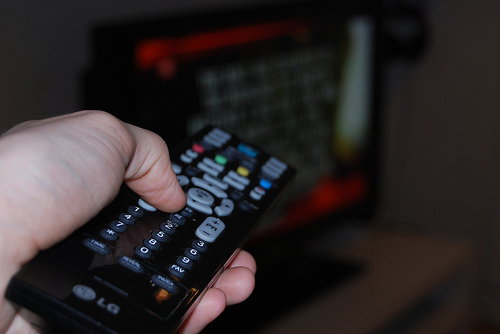<p>Reality television has featured on broadcasting schedules since the early days of TV, only recently earning its position as a unique genre of programming. As is befitting of its unscripted nature, it’s path has often been unexpected and always provocative…<br />
In recent years, reality TV programming has come to dominate prime time, popular TV scheduling with now familiar formatting, typically falling into one of two categories &#8211; the fly on the wall and the reality game show. But how did this genre and its formats come about? And where will they be heading in the future?</p>
<h3><strong>Before Reality TV</strong></h3>
<p>The term ‘reality television’ was coined in the 90s but its roots lie much further back in the early days of television broadcasting. Since the 1940s, the allure and drama of seeing ordinary people on TV has drawn in viewers. Early TV shows from the 40s and 50s such as <em>Candid Camera</em>, where hidden cameras filmed peoples’ reactions to unexpected pranks, and talent shows from <em>The Original Amateur Hour</em> to beauty pageants laid the foundations for some of modern Reality TV’s core themes.<br />
Later, through the 60s and 70s directors started experimenting with unstructured documentary filming styles. <em>An American Family</em> (US) and its follow-up, <em>The Family</em> (UK) were the first Fly On The Wall documentary series where cameras followed the daily lives of two families. <em>An American Family</em> was a ground-breaking and controversial success as the film crew found themselves chronicling the divorce of the titular family’s mother and father making for viewing more compelling than the producers could have anticipated.</p>
<h3><strong>The Early Years</strong></h3>
<p>In the 80s and 90s the reality format evolved into the prototypes of the programming we’re familiar with today. Fly On The Wall documentaries increased in popularity with shows such as <em>COPS</em> proving so successful that it is still running 24 years later. Meanwhile, in Holland, directors were experimenting with a new take on the reality documentary format with <em>Number 28</em> in which seven strangers were filmed living together in the same house, a format which was later reused in MTV’s <em>The Real World</em>. Unlike modern reality shows of a similar format, there were no game show elements here and the participants were free to lead ordinary lives, with all the drama and intrigue simply coming from the different personalities and everyday relationships that formed.</p>
<h3><strong>Reality TV Explodes</strong></h3>
<p>It was around this time that reality TV really started to get big.<br />
Advances in video editing technology meant that huge amounts of film could be recorded and then quickly and easily edited down to a broadcastable format, making it much easier to produce reality TV shows at scale.<br />
Game show elements were mixed into the format to ensure drama and tension were never far away, first with <em>Expedition Robinson</em> (later exported to other countries as <em>Survivor</em>), in which the contestants had to vote amongst themselves to decide who was evicted from an island and then with <em>Big Brother</em> in which nominations were made by housemates but the final vote was given to the viewer.<br />
Whilst <em>Survivor </em>was all filmed months in advance, thanks to computer editing technology, producers were able to deliver a nightly episode of <em>Big Brother</em>, compiled from footage from the previous 24 hours complete with narration and host live eviction shows, whilst the additional airtime afforded by broadband and satellite TV channels allowed for round-the-clock live coverage, creating an immediacy never previously experienced in reality TV.<br />
The audience voting method also breathed new life into the previously tired talent show format, with <em>Pop Idol</em> following fast on the success of Big Brother, offering viewers the ability to vote for winners of the weekly live singing competition, a format which would pave the way for a surge of similar shows including <em>The X Factor</em>, <em>Britain’s Got Talent</em> and <em>The Voice</em>.</p>
<h3><strong>The Future Of Reality</strong></h3>
<p>It’s clear that the popularity of reality formats isn’t diminishing. Although some shows are fading, fresh updates to the format continue to bring in new audiences. But with seemingly every aspect of human life from the weird and wonderful to the mundane and everyday &#8211; Amish teens relocated to New York, execs squabbling for apprenticeships, pawnbrokers wheeling and dealing and air stewards gossiping &#8211; where will reality TV take us next?<br />
Well, even the sky may not be the limit. Sony Pictures Television, in conjunction with Space Expedition Corporation (SXC) is currently planning a new format titled <em>Milky Way Mission</em> which will see Dutch celebrities competing via an intensive boot camp training program to win a trip into outer space. And they’re not alone, with <em>The Voice </em>and <em>Survivor</em> producer Mark Burnett planning a similar format in conjunction with Virgin Galactic, reality TV seems set to escalate into a space race.</p>
<h5>Featured images:</h5>
<p><span class="license">License: Creative Commons</span><br />
<span class="source">image source</span><br />
Roger is a keen blogger with a huge passion for writing. Roger works with various organizations to produce unique, informative content ranging from small business advice to satellite technology.</p>

The Past, Present And Future Of Reality TV
